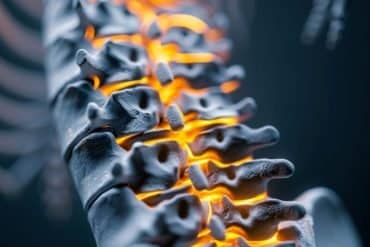Summary: Findings debunk the common theory that attention is the only cognitive function affected by sleep deprivation. Lack of sleep also hinders a person’s ability to complete activities that require following multiple steps.
Source: Michigan State University
Michigan State University’s Sleep and Learning Lab has conducted one of the largest sleep studies to date, revealing that sleep deprivation affects us much more than prior theories have suggested.
Published in the Journal of Experimental Psychology: General, the research is not only one of the largest studies, but also the first to assess how sleep deprivation impacts placekeeping – or, the ability to complete a series of steps without losing one’s place, despite potential interruptions. This study builds on prior research from MSU’s sleep scientists to quantify the effect lack of sleep has on a person’s ability to follow a procedure and maintain attention.
“Our research showed that sleep deprivation doubles the odds of making placekeeping errors and triples the number of lapses in attention, which is startling,” Fenn said. “Sleep-deprived individuals need to exercise caution in absolutely everything that they do, and simply can’t trust that they won’t make costly errors. Oftentimes – like when behind the wheel of a car – these errors can have tragic consequences.”
By sharing their findings on the separate effects sleep deprivation has on cognitive function, Fenn – and co-authors Michelle Stepan, MSU doctoral candidate and Erik Altmann, professor of psychology – hope that people will acknowledge how significantly their abilities are hindered because of a lack of sleep.
“Our findings debunk a common theory that suggests that attention is the only cognitive function affected by sleep deprivation,” Stepan said. “Some sleep-deprived people might be able to hold it together under routine tasks, like a doctor taking a patient’s vitals. But our results suggest that completing an activity that requires following multiple steps, such as a doctor completing a medical procedure, is much riskier under conditions of sleep deprivation.”

The researchers recruited 138 people to participate in the overnight sleep assessment; 77 stayed awake all night and 61 went home to sleep. All participants took two separate cognitive tasks in the evening: one that measured reaction time to a stimulus; the other measured a participant’s ability to maintain their place in a series of steps without omitting or repeating a step – even after sporadic interruptions. The participants then repeated both tasks in the morning to see how sleep-deprivation affected their performance.
“After being interrupted there was a 15% error rate in the evening and we saw that the error rate spiked to about 30% for the sleep-deprived group the following morning,” Stepan said. “The rested participants’ morning scores were similar to the night before.
“There are some tasks people can do on auto-pilot that may not be affected by a lack of sleep,” Fenn said. “However, sleep deprivation causes widespread deficits across all facets of life.”
Source:
Michigan State Universityr
Media Contacts:
Caroline Brooks – Michigan State University
Image Source:
The image is in the public domain.
Original Research: Closed access
“Effects of total sleep deprivation on procedural placekeeping: More than just lapses of attention”. Stepan, Michelle E., Altmann, Erik M., & Fenn, Kimberly M.
Journal of Experimental Psychology: General doi:10.1037/xge0000717.
Abstract
Effects of total sleep deprivation on procedural placekeeping: More than just lapses of attention
Total sleep deprivation (TSD) impairs attention as well as higher-order cognitive processes. Because attention is a core component of many tasks, it may fully mediate the effect of sleep deprivation on higher-order processes. We examined this possibility using the Psychomotor Vigilance Task as a measure of attention and the UNRAVEL task as a measure of placekeeping, a higher-order process that involves memory operations and supports performance in a wide range of complex tasks. A large sample of participants (N = 138 contributing data) performed the Psychomotor Vigilance Task and UNRAVEL under rested or sleep-deprived conditions. TSD impaired placekeeping generally and memory maintenance processes specifically, above and beyond the effect of participants’ attentional state. The results suggest that TSD may impair a range of higher-order cognitive processes directly, not just fundamental processes such as attention, and that interventions that benefit attention may have limited scope.






